Are you looking to make a meaningful impact through your organization? Writing a compelling donation request letter to government agencies can be a key step in securing the support you need. In this article, we'll explore tips and strategies to craft an effective letter that highlights the importance of your cause while resonating with potential funders. Join us as we dive deeper into the essential elements of a persuasive donation request and learn how to increase your chances of success!
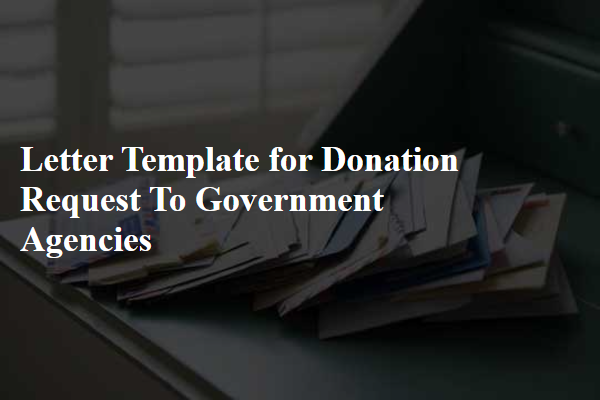
Purpose and Benefit Explanation
The local community organization seeks funding to enhance educational programs for underserved youth in Springfield, a city with a population of 160,000. Currently, over 25% of children face academic challenges due to limited access to resources. By securing a grant of $50,000 from government agencies, the organization aims to develop after-school tutoring initiatives, providing mentorship and skill development workshops. These efforts are expected to improve literacy rates and boost overall academic performance by at least 30% within the next year, ultimately contributing to a stronger, more educated workforce. The initiative aligns with the state's commitment to reducing educational inequality and supports long-term economic growth in the region.
Detailed Project Proposal
A donation request to government agencies requires a detailed project proposal outlining key elements like objectives, beneficiaries, budget, and expected outcomes. The project proposal must highlight the community's needs, such as statistics showing the impact of issues like poverty rates or educational deficits in specific areas, including demographic data from regions like Flint, Michigan, or the Bronx, New York. Include specific programs aimed at addressing these challenges, such as after-school initiatives for underprivileged youth or health clinics providing free services to low-income families. Additionally, present a budget breakdown that outlines costs associated with personnel, materials, and overhead, providing clarity on how funds will be utilized effectively. By tying the project to broader governmental objectives, such as enhancing community well-being or reducing inequality, the proposal can foster alignment with public priorities. Ending with potential metrics for success, like increased academic performance or improved health outcomes, can further persuade government agencies to support the initiative.
Budget and Funding Needs
Government agencies often require external funding to support various projects, programs, and initiatives that benefit communities. Budget constraints can hinder the execution of essential services, such as public education, infrastructure development, and health services. Agencies may need to outline precise funding requirements, detailing specific amounts necessary for targeted areas like community development ($500,000 for housing projects) or emergency services ($200,000 for disaster preparedness initiatives). Highlighting the intended impact of funding, such as reducing homelessness by 20% or improving emergency response times by 30%, can clearly illustrate the necessity of these financial resources. Demonstrating previous successes supported by funding can enhance credibility, making the case for ongoing or increased financial support more compelling.
Alignment with Agency Goals
Government agencies prioritize funding initiatives that align with their strategic objectives and the broader community needs. Successful proposals typically emphasize shared goals, such as improving public health, enhancing education, and promoting economic development. For instance, an organization might present a project aimed at reducing childhood obesity rates, effectively supporting a public health agency's mission. Active collaboration with local schools to implement nutrition education programs can enhance the proposal's effectiveness, demonstrating a commitment to community collaboration. Highlighting measurable outcomes, such as a projected percentage decrease in obesity rates and increased student engagement, can further reinforce alignment with agency priorities. When crafting donation requests, clarity in articulating how the proposed initiative contributes to the agency's long-term vision will significantly increase the likelihood of receiving support.
Contact Information and Follow-up Plan
Creating a compelling donation request to government agencies requires detailing the organization's mission, the specific needs, and the impact of potential contributions. Highlight the importance of the audience's support, emphasizing community benefits. Include contact information for follow-up, ensuring clarity regarding how to connect and a structured plan for outreach. For example, organizations can include an email address, such as info@charityorganization.org, and a direct phone number (123-456-7890) to answer any questions. A follow-up plan may involve scheduled calls within two weeks following the letter's delivery, alongside an invitation to a community event where stakeholders can witness the positive effects of the funding first-hand. This systematic approach builds relationships and encourages collaboration.
Letter Template For Donation Request To Government Agencies Samples
Letter template of a formal donation request to government agencies for community development projects.
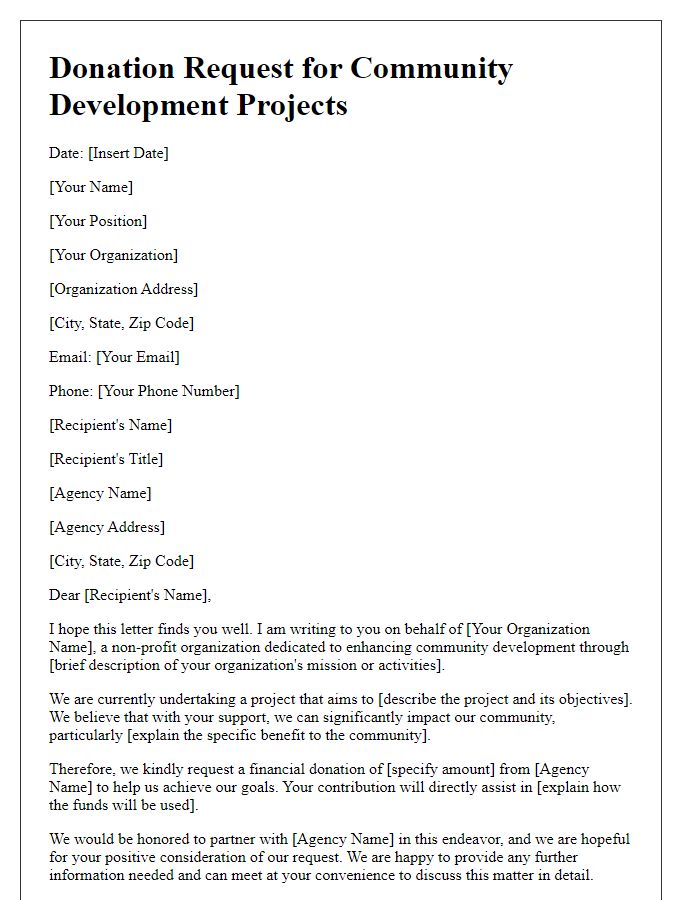
Letter template of an urgent donation request to government agencies for disaster relief efforts.
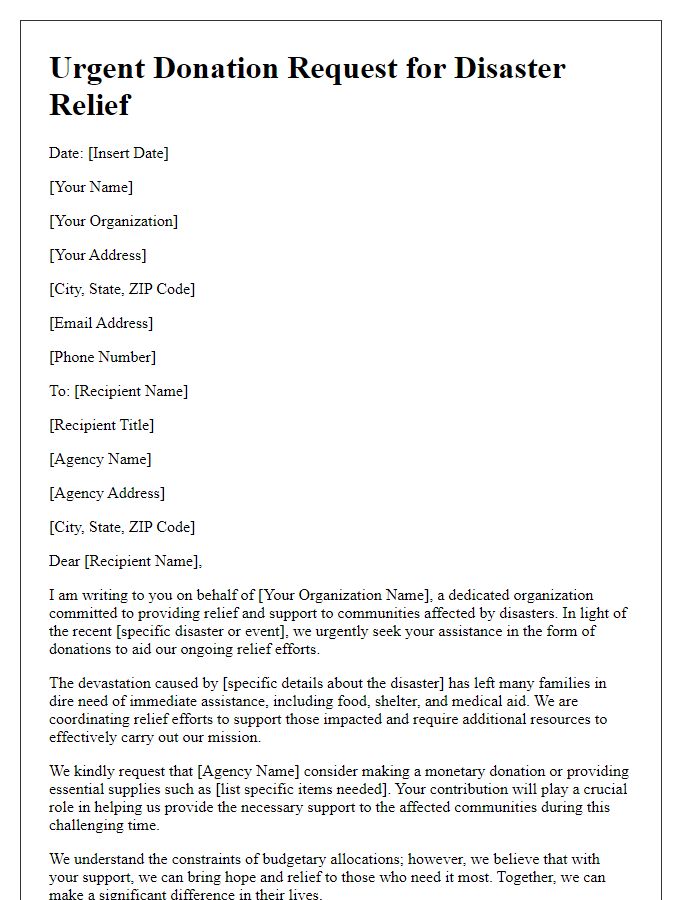
Letter template of a strategic donation request to government agencies for educational programs.
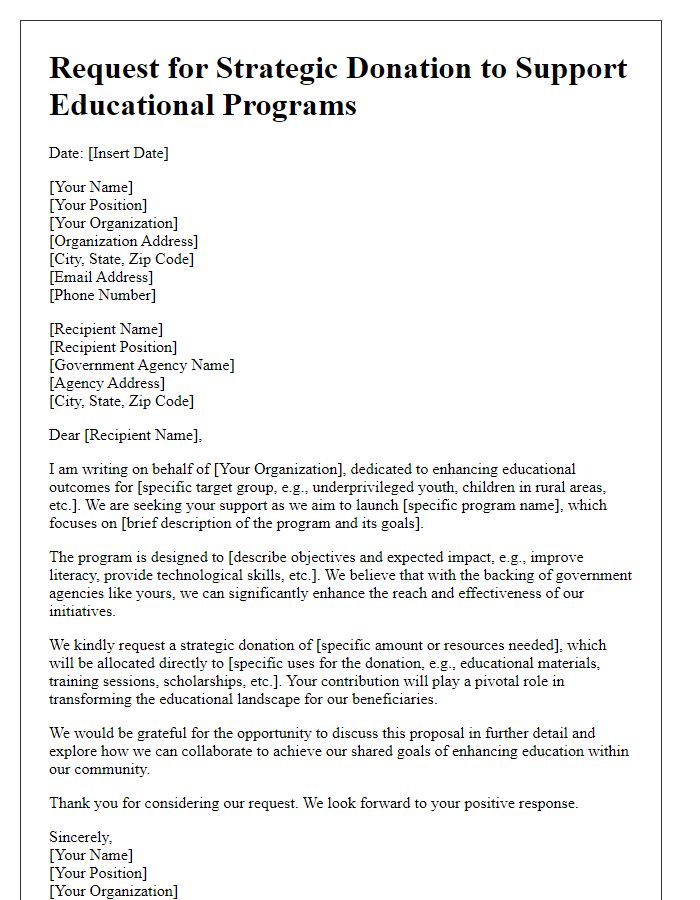
Letter template of a heartfelt donation request to government agencies for health and wellness initiatives.
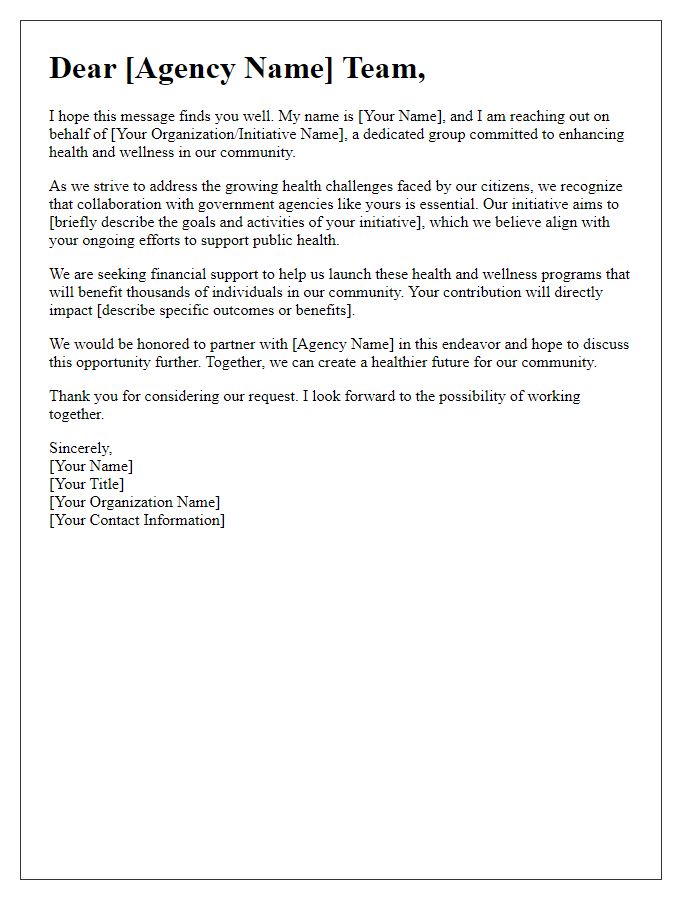
Letter template of a persuasive donation request to government agencies for environmental conservation projects.
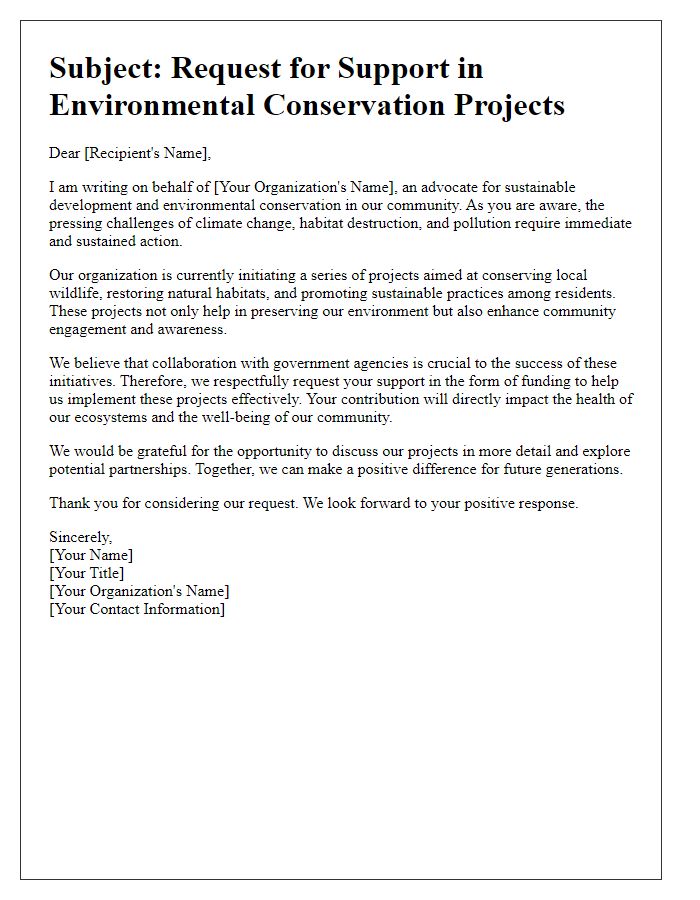
Letter template of a collaborative donation request to government agencies for public art installations.
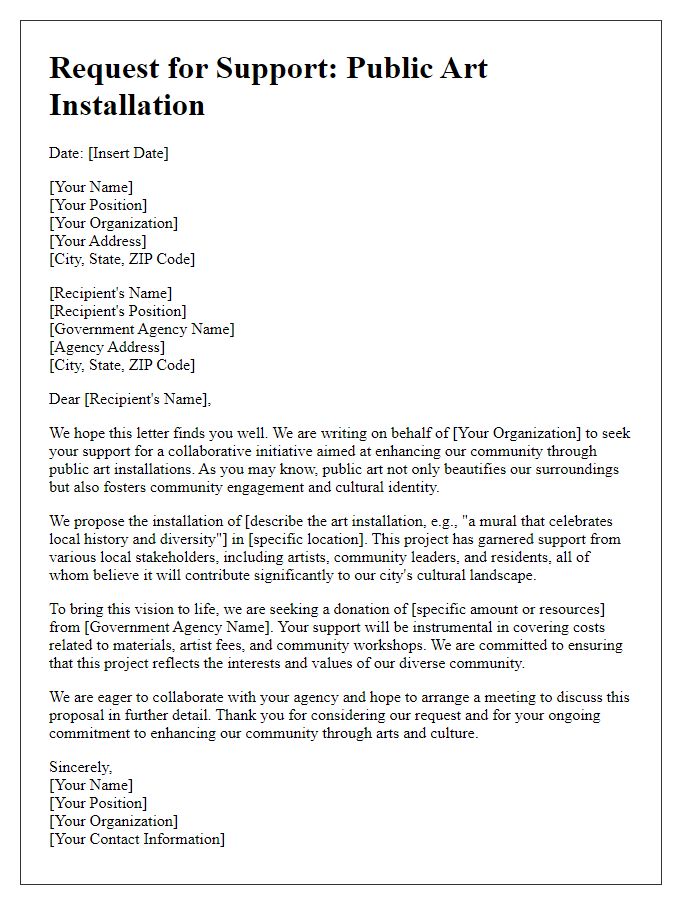
Letter template of a specific donation request to government agencies for youth empowerment projects.
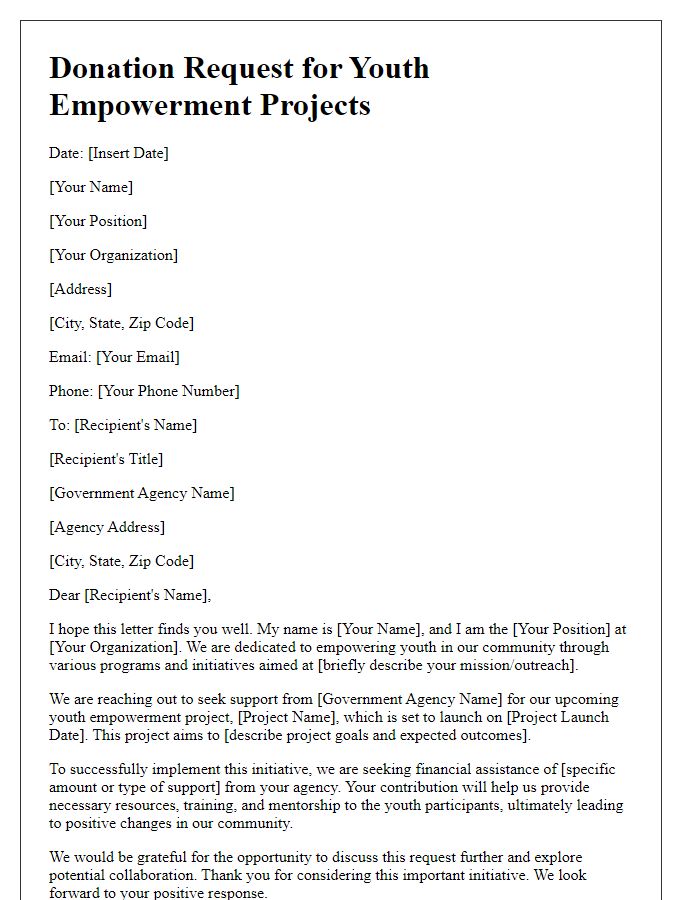
Letter template of a transparent donation request to government agencies for infrastructure improvement.
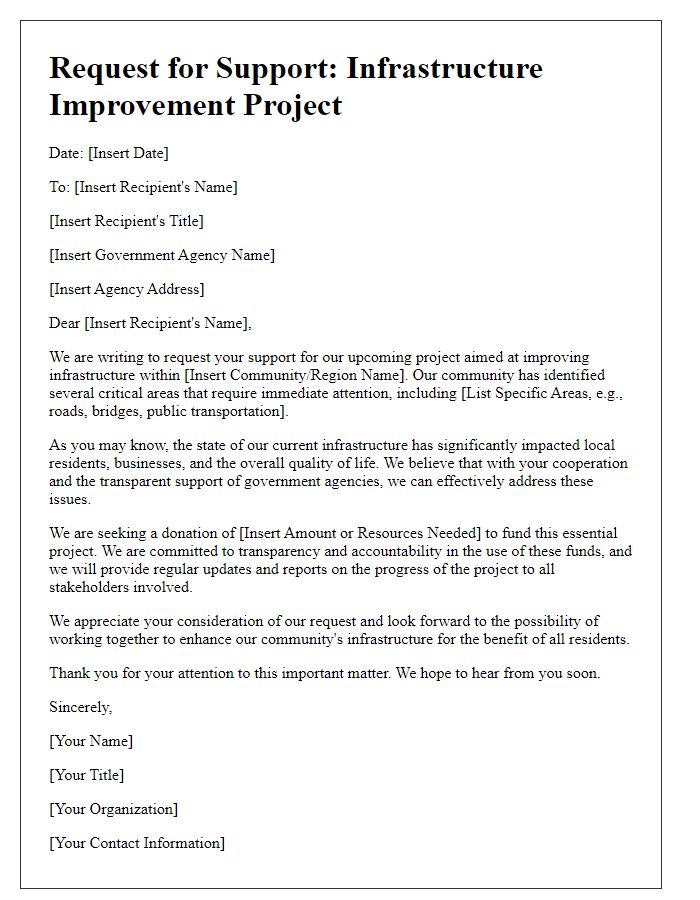
Letter template of a cause-driven donation request to government agencies for animal welfare programs.
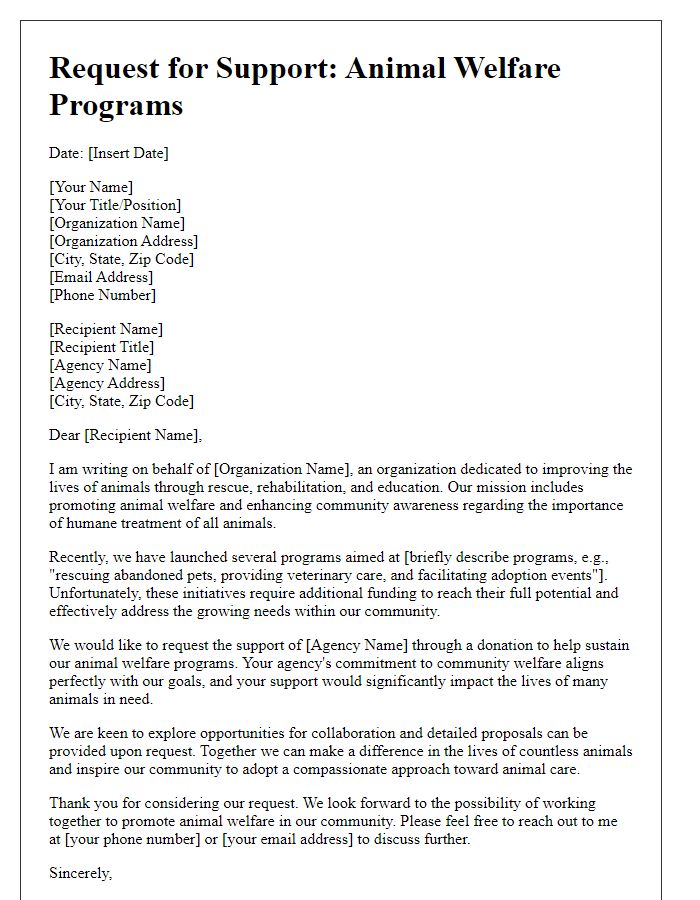

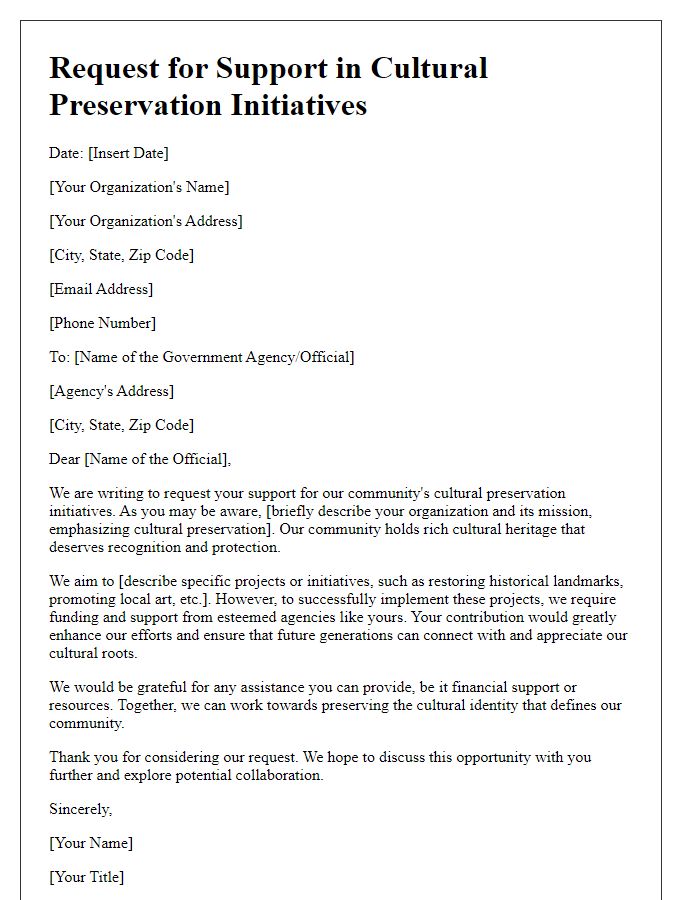

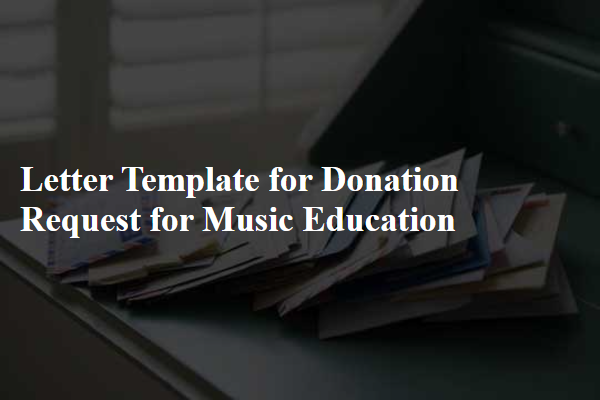
Comments